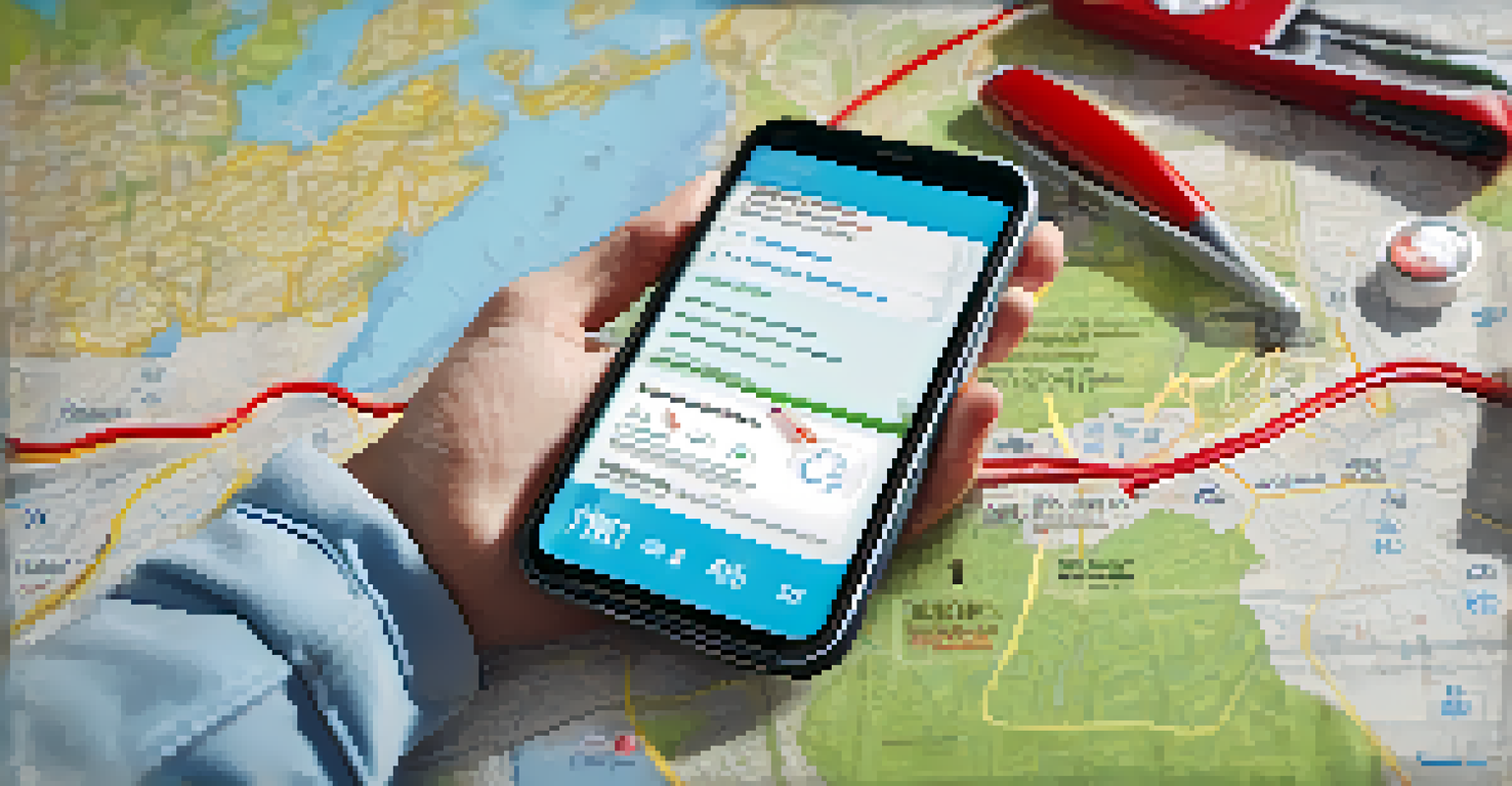Communication Strategies When Traveling During Crises

Understanding the Importance of Communication in Crises
When traveling during a crisis, effective communication becomes crucial. It serves as your lifeline, keeping you informed about the evolving situation around you. Whether it’s a natural disaster, political unrest, or health emergency, knowing how to communicate can greatly enhance your safety and decision-making.
In times of crisis, the ability to communicate effectively can make the difference between life and death.
Imagine you’re in a foreign country facing an unexpected situation, like an earthquake. If you have a reliable way to communicate, you can easily contact local authorities or your embassy for help, keeping anxiety at bay. Additionally, clear communication helps you stay connected with family and friends, providing peace of mind to everyone involved.
Ultimately, understanding the importance of communication in crises not only impacts your own safety but also empowers you to assist others who may need guidance. The more informed you are, the better decisions you can make.
Establishing Reliable Communication Channels
Before you embark on your trip, identify and establish reliable communication channels. This includes downloading essential apps, ensuring your phone is unlocked for local SIM cards, and knowing how to use messaging platforms like WhatsApp or Signal, which can work over Wi-Fi when cellular networks are down.

Consider having multiple backup options, such as a portable charger or a satellite phone, especially in remote areas where connectivity may be spotty. For instance, if you’re hiking in a national park and a storm rolls in, having a satellite phone can be a lifesaver.
Communication is Crucial in Crises
Effective communication can significantly enhance your safety and decision-making during unexpected situations while traveling.
By planning ahead and establishing these channels, you’ll be more prepared to handle unexpected situations, ensuring that you can reach out for help or stay updated on critical information.
Staying Informed: Local News and Alerts
Staying informed during a crisis is key to your safety. Local news sources, government websites, and travel advisories provide real-time updates that can affect your plans. Make it a habit to check these resources regularly, especially if you're in an area prone to sudden changes.
The greatest problem in communication is the illusion that it has been accomplished.
For example, if a hurricane warning is issued while you're in a coastal city, local news will provide information on evacuation routes and shelters. Having access to this information means you can act swiftly and avoid dangerous situations.
In addition, many countries have emergency alert systems that send notifications to mobile devices. Make sure you are registered for these alerts to receive timely updates that may impact your travel.
Crafting a Crisis Communication Plan
Creating a crisis communication plan before you travel can make all the difference. This plan should outline how you and your travel companions will communicate in case of an emergency. Consider setting up a group chat or sharing important contact numbers beforehand to ensure everyone is on the same page.
For example, decide on a specific meeting point if communication breaks down; this ensures that everyone knows where to go if separated. You could also designate a person responsible for relaying information back home, reducing the stress of constant updates.
Establish Reliable Communication Tools
Planning ahead by identifying reliable communication channels and backup options ensures you can stay informed and connected during a crisis.
By having a clear communication strategy in place, you can minimize confusion and ensure that all parties involved have the information they need to stay safe.
Utilizing Social Media Responsibly
Social media can be a powerful tool during crises, but it’s essential to use it responsibly. Platforms like Twitter and Facebook provide instant updates and can help you connect with others. However, be cautious about spreading unverified information that could cause panic or misinformation.
For instance, if you see a post about a protest that may affect your area, verify this information through reliable news sources before acting on it. Sharing accurate information can assist others in understanding the situation better and making informed decisions.
Additionally, social media can be a way to reach out for help. If you find yourself in a difficult situation, a simple post can alert friends and family to your whereabouts, potentially leading to quick assistance.
Emergency Contacts: Who to Reach Out To
Knowing who to contact during a crisis is vital for your safety. This includes local emergency services, your country's embassy, and even trusted friends or family back home. Before traveling, compile a list of these contacts, ensuring you have their numbers saved in your phone and written down in case your device fails.
For example, if you're in a foreign city and face a medical emergency, knowing how to contact the nearest hospital or your embassy can expedite help. This proactive approach can save precious time during critical situations.
Stay Calm and Debrief After Events
Maintaining composure during a crisis helps you make better decisions, and reflecting on the experience afterward can improve future travel safety.
Moreover, consider sharing this contact list with your travel companions. This way, everyone is aware of the resources available, enhancing your collective safety.
Maintaining Calm and Composure in Crisis Situations
In the midst of a crisis, maintaining calm and composure is crucial. Panic can cloud your judgment and lead to poor decision-making. Practice mindfulness techniques or breathing exercises to help manage anxiety, allowing you to think clearly and make informed choices.
For example, if you’re caught in a sudden protest, taking a moment to breathe and assess the situation can help you decide whether to leave the area or find a safe spot. Staying calm not only benefits you but also helps those around you feel more at ease.

Remember, your ability to remain composed can influence how others react. By setting a positive example, you can contribute to a more organized and thoughtful response to the crisis.
Post-Crisis Communication: Debriefing and Reflection
After experiencing a crisis, it’s important to engage in post-crisis communication. This involves debriefing with your travel companions to discuss what happened, how you responded, and what you could improve for next time. Reflecting on the experience helps you learn valuable lessons that can enhance your future travel safety.
For instance, consider what worked well in your communication plan and what didn’t. Did everyone know how to reach each other? Were local resources effective? Taking notes on these aspects will prepare you better for future trips.
Additionally, don't hesitate to reach out to loved ones back home to share your experiences. This not only helps you process the event but also reassures them of your safety and well-being.